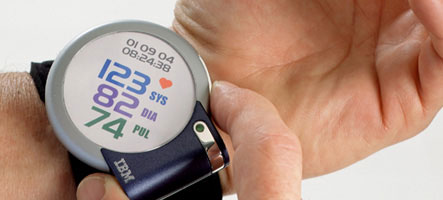Via Wireless Healthcare
According to a report by Cambridge UK analysts, some consumer electronics companies are exploiting the growing demand for devices and services that help people remain trim, fit and mentally alert.
The report "eHealth And Consumer Electronics", which is published this week, suggests the market for consumer electronics based therapeutic and well-being devices and services will grow by 20% per annum and could be worth $4 billion per annum by 2010. Wireless Healthcare highlights developments such as Nintendo's 'Brain Age' software, which helps older people retain mental agility. Sales of the DS have reached 20 million and Brain Age has helped Nintendo break into the ageing baby boomer market - not a demographic group that usually buys video games.
The report also examines the market for devices that reduce blood pressure and hypertension by teaching the user to breathe correctly. These products are based on simple ECG technology and are used as part of stress reduction programmes. The report identifies web sites that allow users to upload ECG data from devices - including exercise monitors - as potential platforms for next generation ehealth services. According to Peter Kruger, Analyst with Wireless Healthcare, "Some of these services are being promoted by healthcare payers who have a vested interest in preventative healthcare. We feel that, in the long term, these services will disrupt the business models of incumbent healthcare providers."
According to Wireless Healthcare, as the exercise device market becomes more competitive, vendors will add healthcare related features to their fitness subscription-based services in an attempt to maintain margins and increase brand loyalty. The report points to a range of subscription style services that support both dieting and exercise and estimates the online well-being market could be worth up to $2 billion per annum by 2010. However, the report warns that services such as mobile phone based online dieting will not maintain growth without support from established players in the diet management sector.


